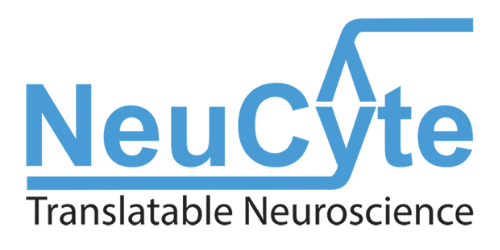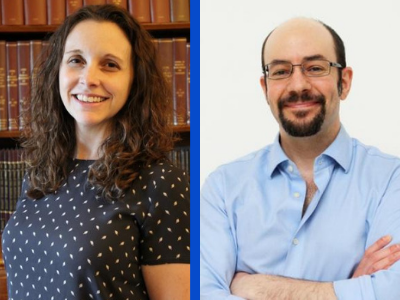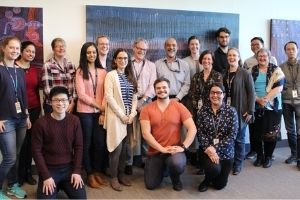KIF1A.ORG exists to accelerate discovery of treatments for this generation of people affected by KIF1A Associated Neurological Disorder (KAND). In addition to ongoing R&D collaborations, KIF1A.ORG funds strategic projects powered to rapidly develop treatment for KAND.
Chung Lab

Wendy Chung, MD, PhD, and her team at Boston Children’s Hospital have been our relentless partners since the founding of KIF1A.ORG in 2017. Chung Lab spearheads a robust preclinical KAND program, including a global patient registry and longitudinal natural history study; disease modeling with patient-derived stem cell lines (iPSCs) and animal models; biomarker studies; KAND severity scale and clinical disease characterization. Dr. Chung has been our sherpa from day one, and sees many of our KAND families in her clinic. The Chung Lab’s work has drastically improved our understanding of KIF1A gene function, clinical care, and targeted strategies to develop treatments and cures for KAND. Dr. Chung also leads several collaborations within the scientific community focused on bringing treatment to families affected by mutations in KIF1A.
Most recently, KIF1A.ORG has partnered with the Chung Lab and a team of clinicians to launch the KOALA Study. The KOALA Study is an opportunity for patients and families to advance KAND research, and get us closer to treatment, by participating in clinical assessments in-person. These standardized assessments with KAND patients will help scientists, clinicians, and drug developers understand how KAND symptoms develop and change over time and prepare for clinical trials. If you’re a patient or caregiver, visit our Natural History Study and KOALA Study pages to learn how you can get involved to advance KAND research further.
Recent Research
- Genotype and defects in microtubule-based motility correlate with clinical severity in KIF1A-Associated Neurological Disorder (2021)
- Disease severity in KIF1A Associated Neurological Disorders (KAND) is correlated with variant location (2019)
NeuCyte

NeuCyte is an early-stage biotechnology company solely focused on neurological diseases. With the expertise on advancing the drug discovery process by using cell based target-identification and drug-discovery platforms, NeuCyte puts an emphasis on the biology insight of the disorders to develop novel drugs that truly address the altered biological state of the patients. Based on its proprietary SynFire® technology for generating human induced pluripotent stem cell (iPSC)-derived induced neural cells, NeuCyte has developed a highly functional cell-based platform for target identification and validation, efficacy testing, in vitro disease modeling, and neurotoxicity assessment. KIF1A.ORG hired NeuCyte to launch our Treatment Accelerator Program. Through this initiative, we aim to create cell-based models of KIF1A Associated Neurological Disorder to better understand KAND, identify treatment strategies and test potential therapeutics. Because the KIF1A.ORG community rallied to fund this initiative, we’re able to make this resource openly available to the scientific community to speed up and expand our search for treatments.
Bain & Sands Labs

KAND comprises over 100 mutations in the KIF1A gene, each of which can influence symptoms differently. We know that many patients in the KAND community experience seizures and other forms of epilepsy. We do not know: 1) which individuals are most at risk for developing seizures, 2) what medications may be most effective, and 3) whether there are specific electrophysiological patterns in KAND that are related to phenotypic severity.
Led by Jennifer Bain, MD, Phd, and Tristan Sands, MD, PhD, KIF1A.ORG is sponsoring an epilepsy-focused KAND study to closely analyze EEGs and natural history data provided by KAND patients to produce crucial insights into epilepsy diagnosis, evaluate existing treatments, and help develop new treatments. Learn more here.
Previously Funded Projects
Christodoulou Lab

The Kinesin family member 1A gene (KIF1A) encodes for the motor transporter protein KIF1A, which is specifically expressed in neurons, and is involved in the fast delivery of its specific cargo to the tips of neurons. KIF1A plays a crucial role in the maintenance and proper functioning of mature neurons, supporting healthy brain function. Defective trafficking caused by dysfunctional KIF1A results in a “traffic jams” in neurons, triggering a devastating spectrum of progressive brain disorders, together known as KIF1A-Associated Neurological Disorders (KAND). Currently, there is no cure for KAND and existing treatments are nonspecific and incomplete, resulting in a huge burden on affected families. In this project, we aim to address this unmet therapeutic need by identifying existing FDA-approved drugs that could be ‘repurposed’ to improve KIF1A molecular function, and subsequently improve the neurological problems that children with abnormalities of KIF1A have to endure. To the best of our knowledge, this is the first small-molecule based drug screening study focused on KIF1A to explore targeted therapeutic options in KAND, which we expect will have a significant impact on the lives of individuals with this devastating neurological disorder.
Recent Research
- Expansion of the phenotypic spectrum of de novo missense variants in kinesin family member 1A (KIF1A) (2020)
Gennerich Lab

Arne Gennerich, Ph.D., is an active member of the KIF1A Research Network and an expert in molecular mechanisms of microtubule-based motor proteins in health and disease. With support from KIF1A.ORG, the Gennerich Lab is working with Atomwise to use their AI drug discovery platform to search for small-molecule drug candidates for KIF1A-Associated Neurological Disorder (KAND). Dr. Gennerich is also collaborating with Hernando Sosa, Ph.D., a colleague at Albert Einstein College of Medicine, who is known for his cryo-electron microscopy (cryo-EM) work to capture high-resolution structures of microtubule-associated proteins. Their cryo-EM project on KIF1A will enable us to drastically improve our understanding of the shape (or structure) of the KIF1A protein, which is critical for efficient therapeutic development for KAND.
Recent Research
- Pathogenic mutations in the kinesin-3 motor KIF1A diminish force generation and movement through allosteric mechanisms (2021)
McKenney Lab

The McKenney lab at University of California, Davis uses state-of-the-art biochemical and biophysical methods to uncover the molecular basis of defects in KIF1A motor proteins containing mutations known to cause KAND. We have focused our initial efforts on the P305L mutation, as this mutation was previously uncharacterized and little was known about how this mutation impacts the KIF1A motor. We are producing normal and mutant KIF1A motor proteins and assaying their ability to move along microtubules using single-molecule microscopy that allows us to visualize individual KIF1A motor molecules and their movement characteristics. Our work with P305L has uncovered novel defects in KIF1A motility, providing new insights into disease-causing mutations that will inform therapeutic efforts. Additionally, the work has uncovered a novel mechanism of disease, which we find is conserved in other classes of kinesin motors that are also mutated in hereditary spastic paraplegia (HSP). Thus, our work on KIF1A is providing novel insights into other causes of understudied human diseases. In addition, we are expanding our efforts to characterize other known KIF1A mutations. Our platform for single molecule investigation will allow us to provide a more complete understanding of how each human mutation affects the KIF1A motor’s ability to move along microtubules, thus helping to tailor specific treatments for individual patients.
Recent Research
- A Highly Conserved 310-Helix Within the Kinesin Motor Domain is Critical for Kinesin Function and Human Health (2020)
- Disease-associated mutations hyperactivate KIF1A motility and anterograde axonal transport of synaptic vesicle precursors (2019)
Barinka Lab

Cyril Barinka is a Principal Investigator at Institute of Biotechnology of the Czech Academy of Sciences, Vestec, Czech Rep, and a scientific collaborator with HNF Pharma Inc. He is a leading expert in the biochemistry and structure-function of the histone deacetylase (HDAC) enzyme gene family. Specifically, inhibitors of the HDAC6 isoform are hypothesized to represent an effective drug therapy for KIF1A Associated Neurological Disorder (KAND). This hypothesis is strongly supported by basic biology and preclinical effectiveness demonstrated for HDAC6 inhibition in Charcot-Marie-Tooth (CMT) by Miralinc Pharma Inc (formerly HNF Pharma Inc) and other researchers. CMT is a hereditary peripheral nervous system (PNS) neuropathy that appears to be closely relatable to KIF1A which affects the central nervous system (CNS). Miralinc Pharma Inc is developing HDAC6 drugs for CMT and also supporting the work conducted by The Jackson Laboratory to prove this therapeutic mechanism of action by providing the novel brain penetrant HDAC6 inhibitor WT36-87 for testing in the KIF1A leg-dragger mouse model. Cyril is providing expertise and assay technology critical to assessing the effectiveness of WT36-87 and advancing HDAC6 drug therapies to KIF1A and CMT patients.
Recent Research
- The disordered N-terminus of HDAC6 is a microtubule-binding domain critical for efficient tubulin deacetylation (2020)
Rarebase
KIF1A.ORG collaborated with Rarebase to explore an antisense oligonucleotide (ASO) to reduce pathological axonal degeneration in KAND. As this form of degeneration is seen in many neurological disorders, such as KAND and hereditary spastic paraplegia, this approach can be applied to a broader spectrum of diseases that are characterized by neurodegeneration. The initial scope of work for this project began in March 2021, and included iPSC differentiation and ASO testing in KIF1A motor neurons.
Curia (formerly Albany Molecular Research Inc.)
In 2020, KIF1A.ORG was awarded a Rising Tides grant from The Child Neurology Foundation to support organizations during the COVID-19 pandemic. This grant enabled KIF1A.ORG to partner with Curia (formerly Albany Molecular Research Inc.) to diversify our research strategy. Curia is a distinguished contract research organization (CRO) with multiple locations and a range of services that support therapeutic development. Our first project with Curia is an in silico docking study to support KIF1A.ORG’s drug repurposing therapeutic development strategy. Through this project, Curia will model the KIF1A crystal structure to understand the location and possible effects of known gain-of-function and loss-of-function mutations, and explore existing kinesin binding compounds. These efforts will provide insight into assay design and strategies to pursue additional mutations.


